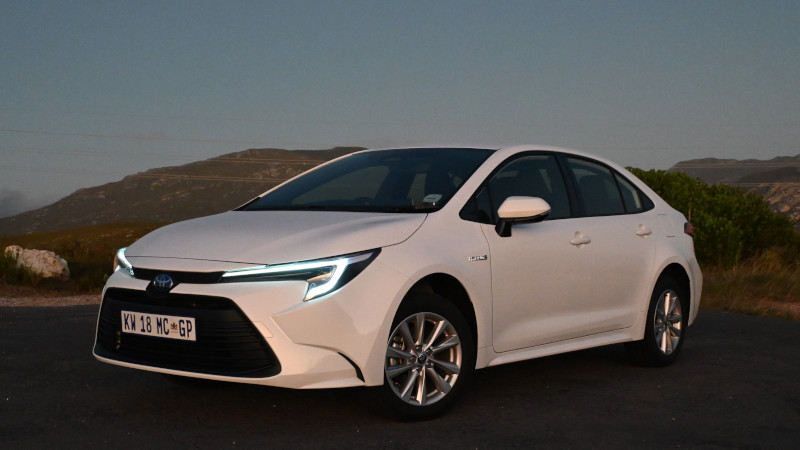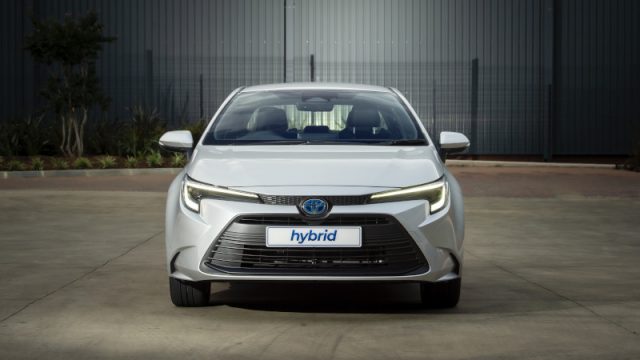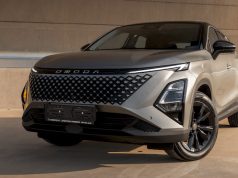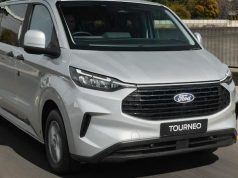What do Tom Hanks, Leo di Caprio, Salma Hayek, and Julia Roberts have in common? Besides wealth and fame, these celebs were early adopters of the Toyota Prius hybrid car. Tesla wasn’t around yet, the electric RAV4 didn’t get off the ground, and General Motors had killed its electric child, the EV1. The best way to drive home your green credentials was owning a Prius.
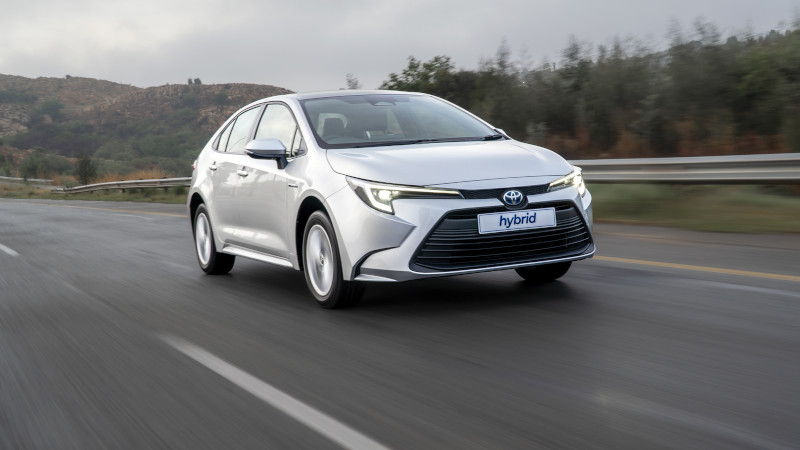
For many years, it was Toyota’s only hybrid. These days, the Japanese giant increasingly builds hybrid tech into its other models. Even the Land Cruiser 300, Hilux, and Fortuner will be available as hybrids within the next few years. What’s more, is that the Toyota bZ4X (that’s not a typo) and Lexus RZ, both fully electric, are scheduled to reach Mzansi in 2023 and 2024.
In the meantime, Toyota South Africa offers the RAV4, Corolla Cross, Corolla hatch, and Corolla sedan in hybrid form. We tested the top version of the sedan range, the Corolla 1.8 XR Hybrid.
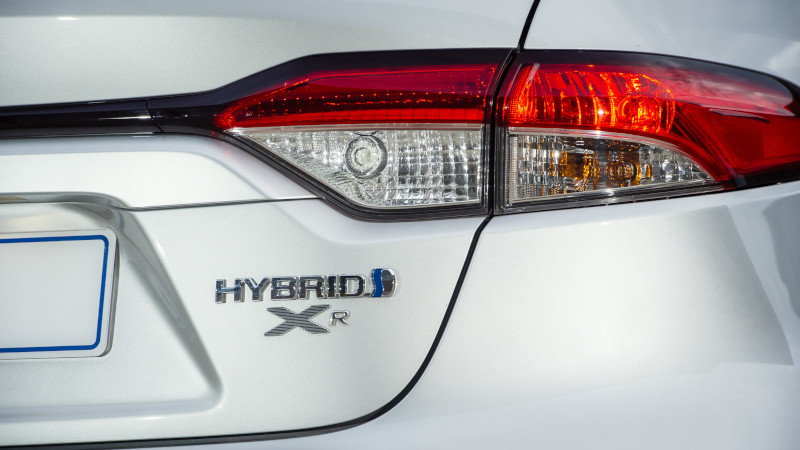
Main features of the Corolla XR Hybrid
- Low fuel consumption
- Sufficient power for overtaking
- Automatic transmission
- Android Auto and Apple CarPlay
- Bi-LED headlights
- Safety Sense suite
- Seven airbags
- Heated front seats
- Crash safety score: 5/5 (Euro NCAP test)
- Double wishbone rear suspension
What is it?
Over the years, the Corolla (born in 1968), was available as a hatchback, estate, coupé, and sedan. These days, it’s available in South Africa as a crossover/SUV (the Corolla Cross), a hatchback, and a sedan, of which our test subject is the most expensive in the sedan range.
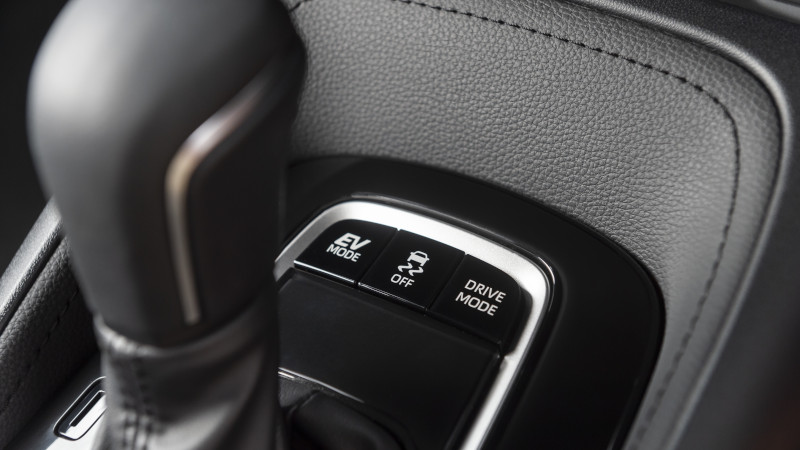
Sedans need love too
Sedan cars have become unfashionable when compared to the SUVs, crossovers, and double cabs that car buyers now prefer. Motorists feel safer when they meet other road users at eye level, and to some degree they are. So why would anyone still want a sedan?
Firstly, cars that are lower to the ground have less air resistance than pickups and SUVs. Less resistance means improved fuel economy, so the Corolla hybrid sedan consumes less fuel than the Corolla Cross hybrid. In my experience, up to 20 percent less.
The other supposed advantage of crossover/SUVs over ‘normal’ cars is their ability to withstand pothole damage. But this is only true for dedicated off-roaders, like Land Cruisers, Jimnys, and Raptors. If something like a VW T-Roc or Mercedes GLC rides on low-profile road tyres, it will be as vulnerable as a sedan or hatchback with the same.
A real advantage sedans have over SUVs is that items in the boot (trunk) of a sedan are often less visible and less accessible to thieves. This every motorist appreciates, whether he’s a family guy or a sales rep.
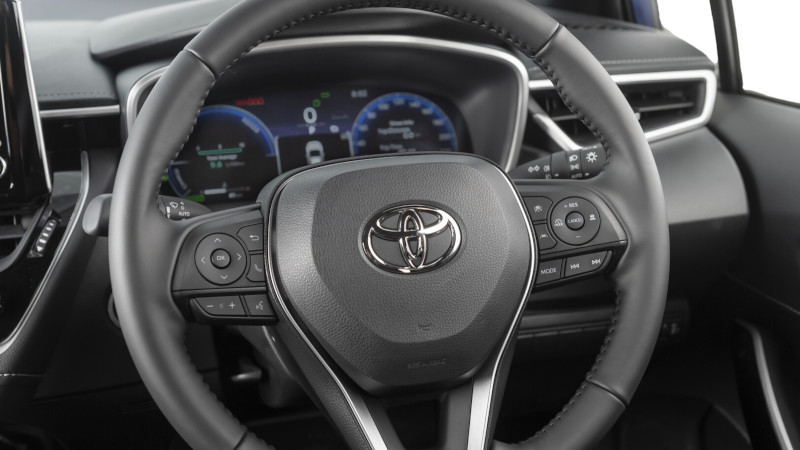
How does it do it?
So, how does this specific hybrid car work? Using Toyota’s Hybrid Synergy Drive (HSD) system, the Corolla Hybrid uses its engine or its electric motor to move it along. Sometimes it uses both at the same time. The car does it all for you, switching between these driving modes almost imperceptibly. The transmission is automatic, so you stick it in Drive, and off you go. It acts like a CVT transmission, but it uses a complex planetary gear system instead.
Because the battery driving the electric motor is small (compared to those of fully electric cars or plug-in hybrids), it doesn’t hold much charge. But there is enough to briefly assume the task of driving the car forward. This makes driving in bumper-to-bumper traffic more bearable, since the engine shuts off and the motor takes the car from standstill to about 40 km/h, when the engine kicks in. A hybrid is more fuel efficient than a ‘normal’ car, as it doesn’t have to do the ‘heavy lifting’ of getting the car off the line.
[mailchimp_list]
Full hybrid cars, like this Corolla, slot in between mild hybrids and plug-in hybrids. A mild hybrid doesn’t have the power to move a car without employing the engine, but it can still assist the engine in pushing the car forward. A plug-in hybrid has a larger battery than a full hybrid. Once charged, it can travel around 50 km before the engine kicks in. (The plug-in version of the Toyota RAV4 can do over 70 km on battery power alone.) As you might have guessed, a plug-in hybrid, also known as a PHEV, must be plugged into an electrical outlet to charge the battery.
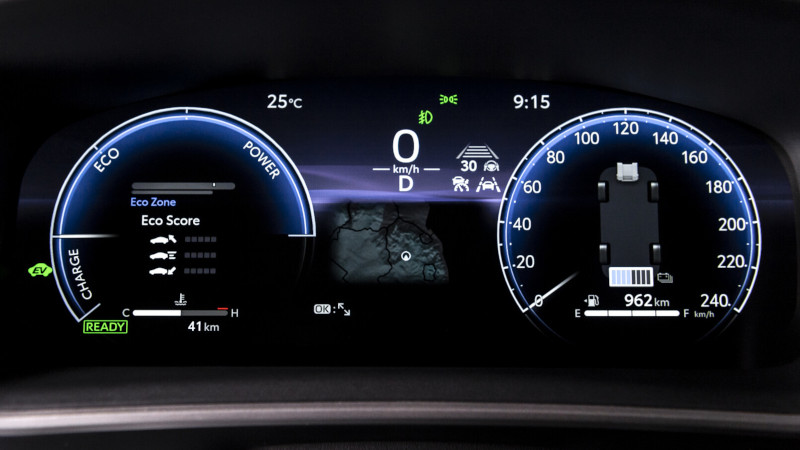
What do I get?
The Corolla hybrid sedan has been available for about two years, but performance was on the lazy side. Recently, Toyota gave it a new drive system, which improved its performance. When the engine and motor work together, they crank out a combined 212 Nm. This is 9 Nm over the Corolla 2.0 XR sedan’s maximum of 203 Nm. The power upgrade makes overtaking on the open road safer and easier, also because electric motors respond instantly when the driver presses the accelerator.
Safer and smarter
With the update, Toyota also improved its adaptive cruise control (ACC). Now, the Corolla XR can stop and pull away in rush hour traffic – by following the vehicle ahead – without driver input. The older system couldn’t do this. When the car’s speed dropped to about 20 km/h, it deactivated the ACC. This risked the Corolla nudging the vehicle ahead. With the system upgrade, the car runs smoothly in slow traffic, without the driver having to apply brakes or press the accelerator.
This feature is part of Toyota’s Safety Sense 3.0 package. It also includes Pre-Collision Warning, Lane Trace Assist, and Auto High Beam. In addition, the blind spot monitor, Rear Cross Traffic Alert, and Safe Exit Assist provide protection from the rear. Seven airbags (including one for the driver’s knees) add further protection.
The Corolla Hybrid XR boasts heated front seats, electrically adjustable lower back support for the driver, an excellent six-speaker sound system, and partial leather upholstery.
The trunk size is 470 litres. It’s big, but not as versatile as that of the typical SUV or crossover. The Corolla rides on 205-55R16 alloy wheels and has a full-size spare.
Build quality is excellent, especially compared to some of its tinny predecessors. It has a solidity akin to Lexus and (almost) the Land Cruiser 300.

Is it easy to drive?
Corollas have always been easy to drive and this this one is no exception. However, it’s getting harder to be the “low” car, when the entire driving population seems to be switching to high-riding vehicles. But that doesn’t take anything away from the Corolla’s ease of use.
The way it handles doesn’t feel sporty, but it does feel safe. Ride quality and road-holding are commendable, thanks to dual wishbone rear suspension. The steering is light enough, without being over-assisted.
A button labelled EV Mode allows for driving under electric power only, albeit for very short distances. This is useful for quietly parking the car in the garage, without waking a sleeping spouse. Another button cycles through three driving modes. ECO Mode helps you maximise fuel economy. Sport Mode provides you with quicker acceleration, and Normal Mode helps you find the a balance between the two.
Outward visibility is good, and the safety gadgets mentioned above keep a watchful eye. The Corolla has an electronic parking brake, hill-ascent control, park-distance sensors front and rear, and a rear camera. There’s an infotainment screen (compatible with Apple and Android phones), Bluetooth, four C-type USB ports, a wireless phone charger, and Toyota Connect.
Other notable items are Bi-LED headlights, heated wing mirrors that fold electrically, an auto-dimming centre mirror, rain-sensing wipers, and ISOFIX anchors for kiddie seats.
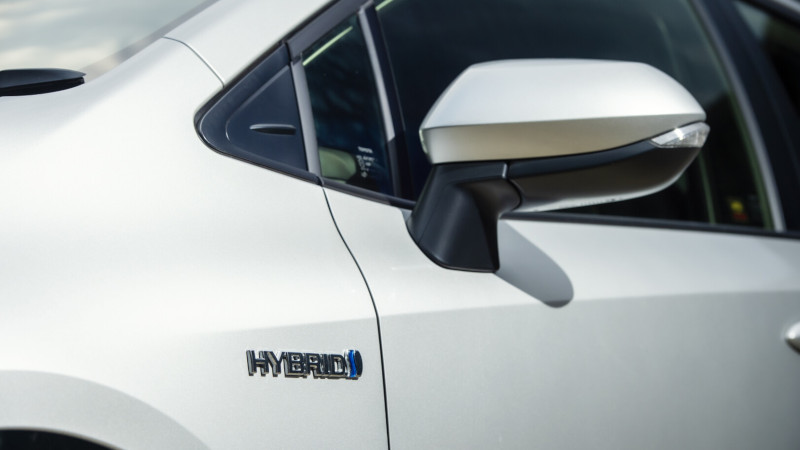
What would I pay?
The Toyota Corolla 1.8 Hybrid XR’s list price is R548 200. To this, add a negotiable administration fee of R5 000 and about R1 800 for licensing and registration.
To finance the car over six years, with a 10 percent deposit, an interest rate of 14 percent, and no balloon payment, will cost R10 400 per month. This amount is subject to interest rate changes.
Another option is Toyota’s leasing plan, Kinto. If you drive 1 000 km (or less) per month, you can lease the Hybrid XR sedan for R8 927 per month over four years. The car must be returned to the dealer at the end of that period. The monthly lease payment includes Kinto Protect, which is similar to car insurance.
The monthly amounts mentioned above are examples only. Your bank or Toyota can structure a plan for you.
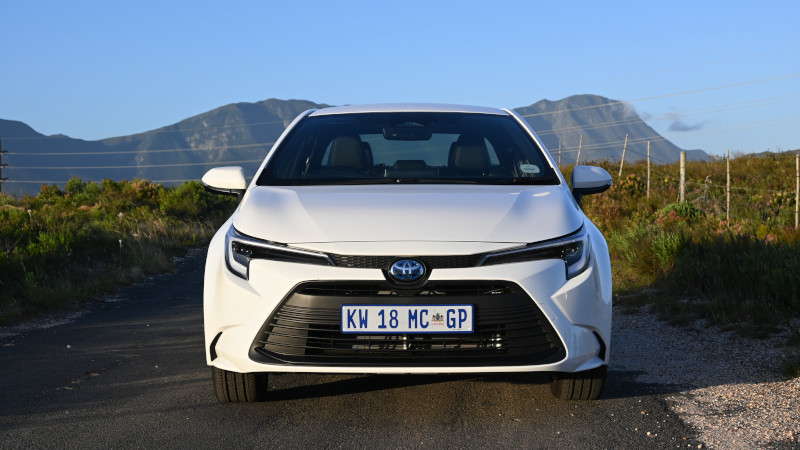
What we like about the Corolla XR hybrid sedan
The reason hybrids exist is to save save fuel and money. The Corolla passed this test with ease. After four weeks and approximately 750 km (mostly long-distance driving), the Corolla Hybrid sedan’s consumption came to 4.4 litres per 100 km (23 km per litre). Using a petrol price of R23.00 a litre to calculate the energy cost of driving the car, it comes to R1.00 per kilometre.
This compares favourably to the 2.0-litre, non-hybrid sedan’s official consumption figure of 5.9 litres per 100 km. If we adjust that to a more realistic 7.0 litres per 100 km (14.3 km per litre), which is still optimistic, a kilometre would have cost me R1.54. This means the hybrid used 50 percent less petrol than the 2.0-litre Corolla sedan would have used. Note that the hybrid costs only R5 000 more than the 2.0-litre, which means a buyer will make up the price difference in just 10 000 km.
The new Corolla Hybrid XR is one of the best cars on the market. It is frugal, luxurious, reliable, safe, has enough power, and will last for generations. The SUV-like Corolla Cross Hybrid is more popular, but those who choose the ‘low-rider’ Corolla get a more fuel-efficient car. Buy a Toyota, and you can also a high level of dependability and good after-sales service. Toyota has approximately 200 dealerships in South Africa.
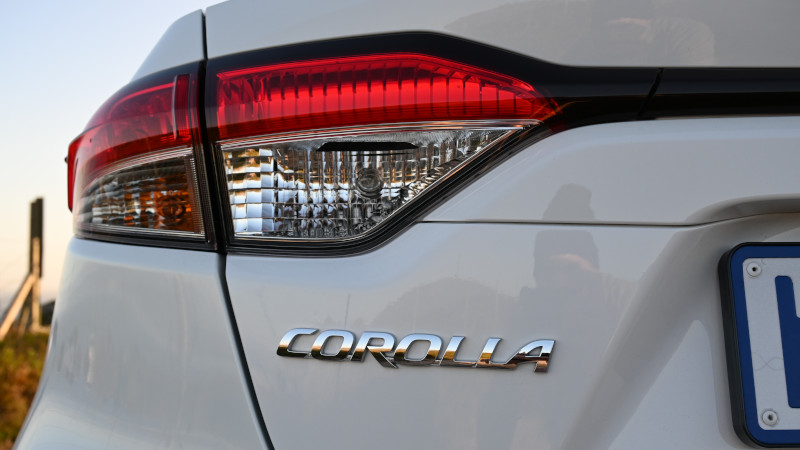
Where Toyota can improve
The XR Hybrid loses point for the tyres’ excessive road noise. There’s nothing else to fault.
Conclusion and rating
There was a time when people scoffed at hybrids. That must have been when fuel was affordable! TopAuto says in South Africa, the cost of petrol has increased by more than 87 percent since 2013, while the cost of diesel increased by 79 percent during the same time period. For motorists who can’t or don’t want to switch to fully electric cars, the Corolla Hybrid could be a suitable in-betweener. It offers some of the benefits of electric propulsion, but it doesn’t need plug-in charging.
Whether the Corolla Hybrid sedan joins a family of four or five, to be a commuter car or do the school run, it will excel. It will also help sales reps and e-hailing operators to minimise fuel spend.
The Toyota Corolla XR Hybrid scores: 4.5 out of 5.
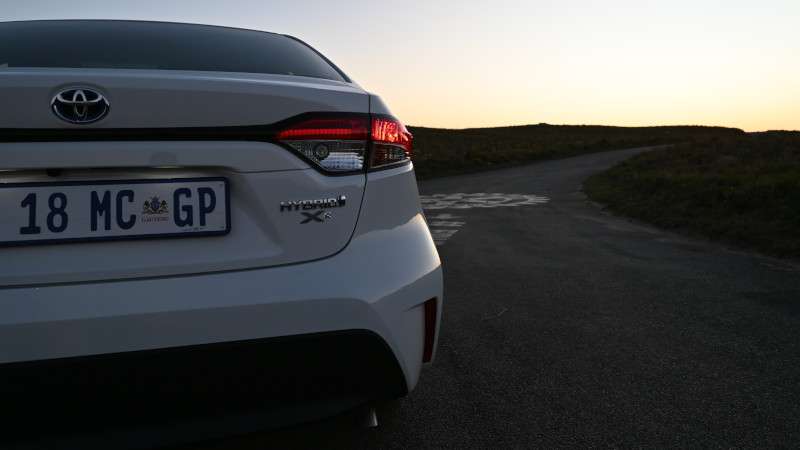
SPECIFICATIONS
- Price: R458 200 (June 2023)
- Engine: 1.8-litre, 4 cylinders
- Max. power: 126 kW (combined)
- Max. torque: 203 Nm (combined)
- Transmission: Automatic, with continuously variable ratios
- Driven wheels: 2, front
- Electric motor: 70 kW
- Electric motor battery: 0,85 kWh lithium ion
- Fuel tank: 43 litres
- Fuel consumption: 3.9 litres per 100 km (Toyota’s figure)
- Length: 4,63 m
- Unladen weight: 1 385 kg
- 0-100 km/h sprint: 9.2 seconds
- Top speed: 180 km/h
- Warranty: 3 years or 100 000 km on the vehicle and 8 years or 195 000 km on the hybrid battery
- Service plan: 6 services or 90 000 km
- Also consider: Toyota Corolla Cross 1.8 XR Hybrid, Toyota Corolla Hatch 1.8 XR Hybrid, Suzuki Grand Vitara 1.5 Hybrid GLX AllGrip, Kia Seltos 1.5CRDi EX+
